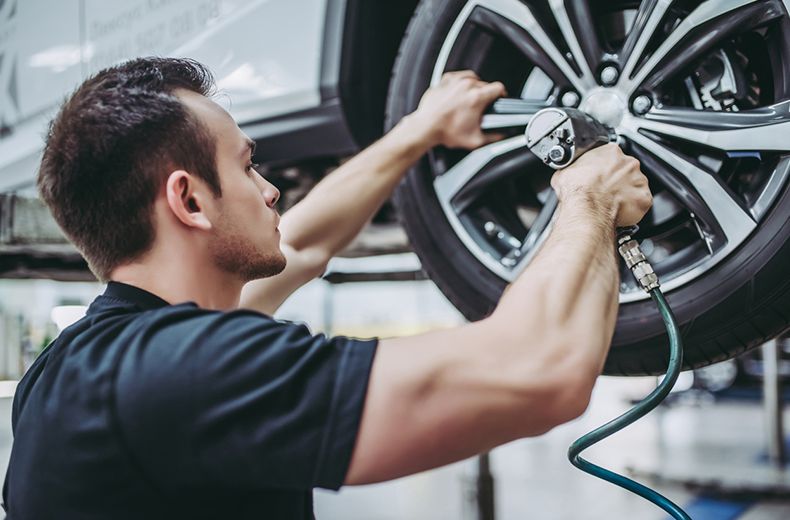A car is a significant investment that requires regular maintenance to keep it running smoothly. One of the essential aspects of car maintenance is servicing. Car service is the process of checking and maintaining various parts of your vehicle, such as the engine, brakes, and tires, to ensure they are in good condition.
Regular car service is vital to keep your vehicle in top condition and prevent costly repairs down the road. In this article, we’ll discuss the benefits of regular car service, what’s included in a car service, when to service your car, and how to choose the right car service provider.
Benefits of Regular Car Service
Regular car service offers several benefits to both you and your vehicle. Some of the benefits include:
- Improved Safety: Regular car service ensures that your car is in top condition, making it safer to drive. Faulty brakes, worn-out tires, or a malfunctioning engine can all lead to accidents on the road. Regular servicing can prevent these issues and keep you and your passengers safe.
- Increased Reliability: A well-maintained car is more reliable and less likely to break down unexpectedly. Regular servicing can detect and fix minor issues before they turn into major problems, reducing the risk of breakdowns.
- Better Fuel Efficiency: A properly maintained car is more fuel-efficient, saving you money on gas. Regular servicing can ensure that your engine is running at peak efficiency, reducing fuel consumption.
- Longer Lifespan: Regular servicing can extend the lifespan of your car by preventing wear and tear on its various components. This can save you money on costly repairs or having to replace your car altogether.
What’s Included in a Car Service?
The components of a car service can vary depending on the type of service and the make and model of your car. However, a typical car service will include the following:
- Oil and Filter Change: This involves changing the oil in your car’s engine and replacing the oil filter.
- Fluid Checks and Top-Ups: The service provider will check the levels of various fluids, such as coolant, brake fluid, and transmission fluid, and top them up if needed.
- Brake Inspection: The service provider will inspect your brakes for wear and tear and replace brake pads if necessary.
- Tire Inspection: The service provider will check your tires for wear, damage, and proper inflation.
- Engine Inspection: The service provider will inspect your engine for any signs of damage or wear and check the spark plugs.
- Other Checks: The service provider will also check other parts of your car, such as the battery, lights, and windshield wipers.
When to Service Your Car?
The frequency of car service depends on several factors, such as the make and model of your car, the age of your car, and your driving habits. However, as a general rule of thumb, you should have your car serviced every six months or every 10,000 kilometers, whichever comes first.
You should also consider servicing your car if you notice any unusual noises, vibrations, or changes in performance. Additionally, if you plan to take a long road trip or if you haven’t serviced your car in a while, you should have it checked before hitting the road.
Choosing the Right Car Service Provider
Choosing the right car service provider is crucial to ensure that your car gets the best possible service. Here are some factors to consider when choosing a car service provider:
- Reputation: Look for a service provider with a good reputation. Check online reviews and ask for recommendations from friends and family.
- Certification: Choose a service provider that is certified by the relevant authorities. This ensures that they have the necessary skills and expertise to service your car.
- Cost: Compare prices from different service providers to ensure that you are getting a fair deal. However, keep in mind that the cheapest option may not always be the best.
- Location: Choose a service provider that is conveniently located. This makes it easier for you to drop off and pick up your car.
- Customer Service: Choose a service provider with excellent customer service. They should be friendly, responsive, and willing to answer any questions you may have.
Conclusion
Regular car service is essential to keep your car in top condition and prevent costly repairs down the road. It offers several benefits, including improved safety, increased reliability, better fuel efficiency, and longer lifespan. When choosing a car service provider, consider factors such as reputation, certification, cost, location, and customer service. By choosing the right service provider and servicing your car regularly, you can enjoy the full benefits of car ownership and ensure that your car lasts for years to come.

